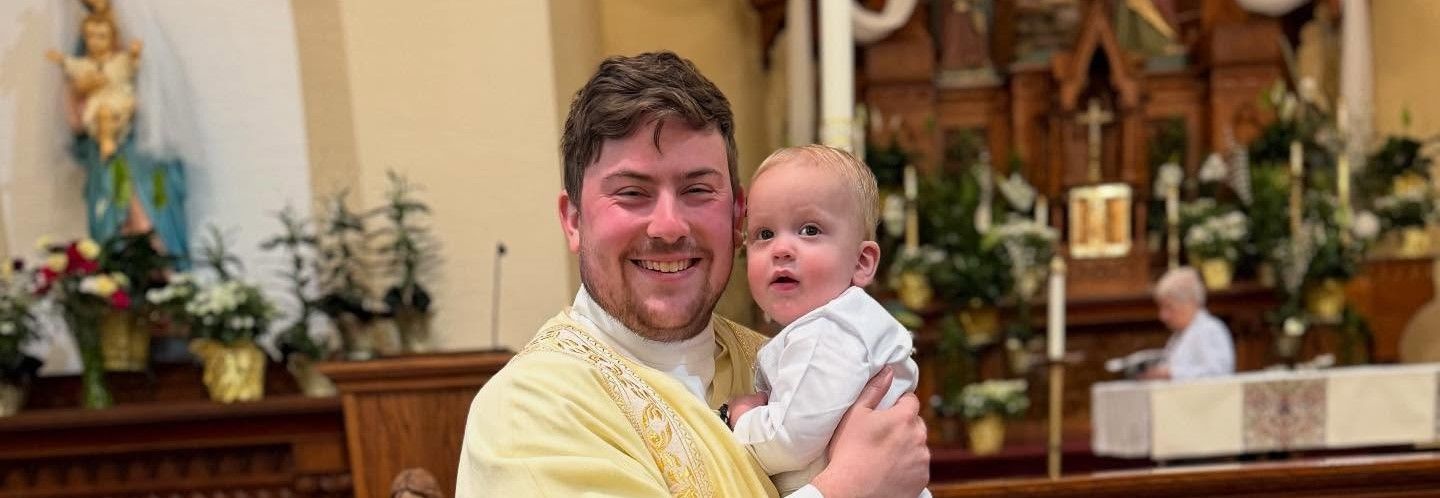How is your observance of the jubilee year going? Beloved: it is already the latter part of the third month of 2025. I do not want to sound a panic alarm, by any means; nevertheless, time is advancing, and we would not want to let Jubilee 2025 conclude without taking the opportunity to participate.
Wait…what’s a “Jubilee”? The Vatican offers this definition: “A Jubilee year was to be marked every 50 years, since this would be an ‘extra’ year, one which would happen every seven weeks of seven years, i.e., every 49 years (cf. Leviticus 25:8-13). Even though it wasn’t easy to organize, it was intended to be marked as a time to re-establish a proper relationship with God, with one another, and with all of creation, and involved the forgiveness of debts, the return of misappropriated land, and a fallow period for the fields.” (from foryourmarriage.org)
So, how specifically can we become participants and not spectators, or as Pope Francis has framed it: how can I be a pilgrim of hope. On the one hand, we could say that adopting an interior “jubilee attitude” is an excellent start. Let each of us ask: “what relationships in my life are in particular need of a good washing down with the healing power of the Holy Spirit?” Is there a “debt” I have been holding over someone’s head—at least in my own head?
Traditionally, there are specific spiritual practices associated with jubilee years:
• Visiting designated holy sites, such as the four major basilicas in Rome or local churches in your dioceses, symbolizes a journey of faith and conversion.
Bishop Malesic has designated sacred sites as places of pilgrimage throughout the regions of the Diocese of Cleveland. Two are within a very reasonable driving distance from Saint Mary: Saints Peter and Paul in Doylestown and St. Edward in Ashland.
• Sacrament of Reconciliation: Confession is encouraged to receive God’s forgiveness and grace, as emphasized in John 20:21-23; and—along with receiving the Eucharist—this sacrament is necessary to obtain an indulgence.
• By fulfilling certain conditions, including prayers, a pilgrimage, or acts of charity, Catholics can receive indulgences, which reduce or eliminate temporal punishment for sins.
• Acts of Mercy: Engaging in corporal and spiritual works of mercy, like feeding the hungry or comforting the sorrowful, reflects Christ’s love.
• Prayer and Reflection: Deepening one’s prayer life and reflecting on Scripture strengthens one’s relationship with God.
I believe some further clarification on indulgences is called for, since at least some of us are likely to associate the term with the “selling” practice to which Martin Luther mounted great objection. There is no “selling” involved in a correct understanding of indulgences— just the opposite. They are an application of God’s gratuitous love and mercy. I hope the following will be helpful, cited from Catholic Answers:
The Church offers special indulgences, which are remissions of the temporal punishment of already forgiven sins, not a “get out of jail free card” for future sins. Remitting that punishment—or aftereffects of forgiven sin—includes purifying us of our “unhealthy attachment to creatures” and other created things (CCC 1472). Indulgences are outlined in the Catechism of the Catholic Church (CCC 1471-1479). They are either partial or plenary, remitting some (partial) or the complete (plenary) temporal punishment due to one’s sins, including, again, that associated with our unhealthy attachments to ourselves, other persons, and things—attachments which necessarily cannot exist in heaven (see Rev. 21:27). Indulgences can be obtained for oneself or for one who has died (the faithful departed).
Let’s be sure to enter into the spirit of jubilee.
Let His Peace be with you,
Fr. Stephen













